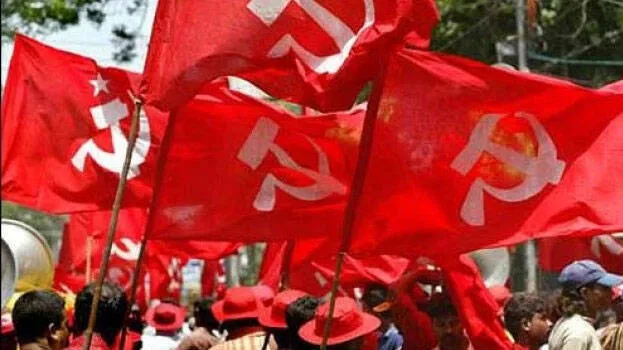
Prime Minister Shigeru Ishiba had hoped calling an election would allow him to gain a firmer grip on power. Instead, his political capital has waned, leaving his premiership hanging by a thread only a month after taking office. His Liberal Democratic Party and its coalition partner Komeito lost their majority control of the 465-member House of Representatives for the first time in 15 years, making it imperative that they seek outside support to stay in power, whether from independents or from parties in the opposition camp.
Navigating the LDP through the ongoing crisis will be a formidable task. Sunday's election came at what some analysts called the worst time for the party as intraparty divisions in the wake of a slush funds scandal, a slowing economy hit by inflation and unease at the funneling of taxpayer money to local chapters all pointed to a perfect storm. "It won't be possible for Ishiba to secure a stable government after the election because he floundered despite his push for party renewal," said Masahiro Iwasaki, a professor at Nihon University.
"I didn't expect such sizable gains by the opposition bloc. The main opposition party has gained strength by focusing mostly on the LDP's scandal, but another change of government can be possible in the future if it wins over voters with more concrete policy steps," he said. The Constitutional Democratic Party of Japan won more than 140 seats, up sharply from 98 before the election.
The Democratic Party for the People quadrupled its seats to around 30. The 67-year-old Ishiba, who secured the LDP presidency on his fifth attempt, may have underestimated the influence of unaffiliated voters who tend to switch parties easily, political experts said. Hanako Omura, a professor at Kyoto University, said, "Prime Minister Ishiba's decision to dissolve the lower house quickly indicates he did not pay attention to unaffiliated voters.
" "When voters supporting the ruling party are dissatisfied with the state of the economy, they are quick to withdraw their support. But a similar trend is not observed among opposition supporters. This is what history tells us about the unique nature of Japanese voting behavior," the expert added.
Around 60 to 70 percent of voters in Japan are not affiliated with any party, with the rest split between the ruling and opposition camps. Some lawmakers, both in the ruling and opposition camps, saw the large number of unaffiliated voters as behind Ishiba's decision to call a snap election, hoping to take advantage of the initial bump in public support during his honeymoon period. Still, the approval rating for his Cabinet has remained relatively low for a new leader.
His decision not to endorse lawmakers implicated in the scandal -- mostly linked to the late Prime Minister Shinzo Abe -- backfired. Things worsened after fresh revelations that the LDP had provided funds to local chapters headed by some of the unendorsed candidates. A sense of alarm heightened toward the end of the campaign, as some members started casting doubt on the longevity of the current administration and whether the ruling bloc can secure a victory in the House of Councillors election next summer.
A ruling party lawmaker in the upper house said before the vote, "It feels like more and more voters want to tighten the screws on the LDP this time, almost as a form of punishment. But what will come out of it? Another nightmarish change of government?" The perceived conservative shift of the main opposition CDPJ under Yoshihiko Noda also helped attract unaffiliated voters disgruntled with the LDP. He was prime minister when the party's predecessor was in power over a decade ago.
The election also exposed internal divisions that may be difficult to mend, boding ill for Ishiba's running the government. Former economic security minister Sanae Takaichi, who was narrowly defeated by Ishiba in the LDP's presidential election last month, was seen to be supporting some scandal-hit LDP members whom the premier decided to remove from the list of official candidates. Frustration among the candidates was evident.
One of them, Koichi Hagiuda, who is known as a conservative member aligned with Japan's longest-serving political leader Abe, openly criticized the new leadership. "The criteria for withdrawing official endorsements are not clear, and I have no choice but to question why the party sent us funds" worth $130,000, Hagiuda said in a video clip, describing the provision of money intended for party chapters to expand the LDP's strength as "unwanted." Ishiba is following the path of his predecessor Fumio Kishida, who gradually led the LDP to depart from Abe's legacy in both macroeconomic policy and diplomacy.
The question is whether the LDP can recognize that public distrust will not disappear, no matter who takes the party's helm, according to Izuru Makihara, a professor at the University of Tokyo. "It's not just the number of seats in parliament that matters. The key in Japanese politics is whether politicians can end this sense of social stagnation" that has persisted since Abe, he added.
The professor argues the LDP should promote "radical" reforms if it wants to restore public trust, noting that ensuring the proper use of political funds is critical through the creation in cooperation with the opposition bloc of a third party organization that can impose checks. With the next upper house election less than a year away, voters will scrutinize whether Ishiba, and the LDP, are serious about reform. After the lower house election, the prime minister said he hopes to stay on as the country's leader.
"Prime Minister Ishiba has been saying what needs to be said about the economy, diplomacy and security and he does not come across as dishonest," Omura said. "But the predicament he faces shows just how challenging it can be to resonate with voters.".














